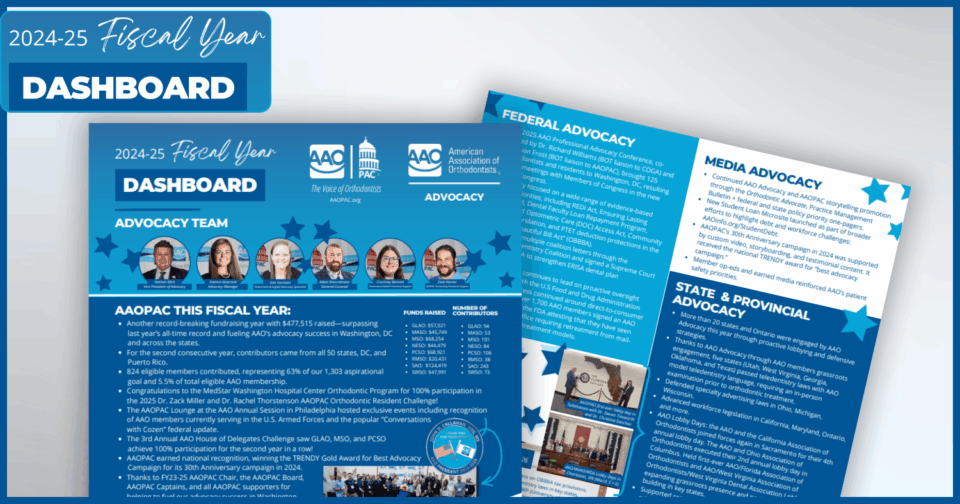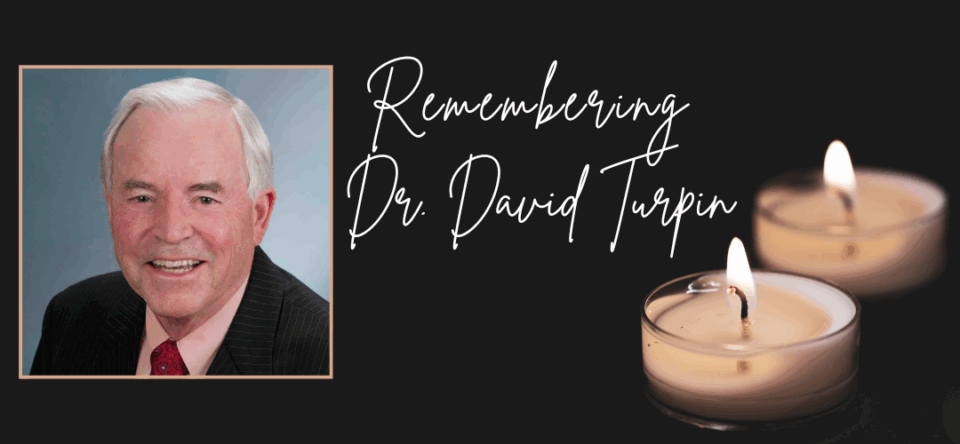AAO members with current or imminent enrollment in a CODA-accredited Craniofacial Anomalies and Special Care program may be eligible to apply for the 2024 AAO Craniofacial Anomalies and Special Care Training Award. Applications will be accepted through February 1, 2024.*
Dr. Vesna-Lea Ferrer, who received the 2023 AAO Craniofacial Anomalies and Special Care Training Award, encourages colleagues with strong interest in craniofacial care to pursue this opportunity. She is currently a Craniofacial Orthodontics Fellow at Children’s Hospital Los Angeles. The one-year program includes research and clinical care of individuals affected with craniofacial anomalies.
“It is a big commitment for an orthodontist, but is something I have been interested in doing for a long time,” says Dr. Ferrer. “Obviously, these are challenging cases and there is a high need for care with this patient population. For me, it is very exciting to be an instrument helping enable the child to become whatever he or she wants to be in life. Patients who have grown up receiving care in our craniofacial hospital program have become many things, including a physician and a star gymnast.
“It is really a privilege to work with the kids,” adds Dr. Ferrer. “We strive to consider the whole person in each case and ensure that we are working toward what is optimal for the patient, with whatever health and external factors may need to be considered.”
Dr. Ferrer’s path to the craniofacial sub-specialty began in the Philippines, where she received a dental degree and a certificate in orthodontics from Manila Central University, practiced and taught.
“I was very interested in teaching and learning more, but educational opportunities in the Philippines at that time were limited,” she says. She spent three years in research fellowships in Japan. Dr. Ferrer and her husband moved to the United States in 2004, where she completed a doctoral program in biomedical science at the University of Connecticut Health Center and the orthodontic program at the University of Nebraska Medical Center.
Currently, in addition to her craniofacial patient care responsibilities, Dr. Ferrer is a lecturer and clinic instructor in the Section of Orthodontics at the UCLA School of Dentistry. Her previous teaching appointments included serving as director of the predoctoral orthodontics program at the University of Missouri-Kansas City (UMKC). As an assistant clinical professor, Dr. Ferrer received two AAO Foundation awards:
● The Michael Matlof Memorial Teaching Fellowship Award, an Orthodontic Faculty Development Fellowship Award, in support of the research project “Curriculum Content in Clinical Skills Development for Predoctoral and Advanced Education Programs in Orthodontics”; and
● The James A. McNamara Orthodontic Faculty Development Fellowship Award, in support of research on determining the topics and subtopics in Growth and Development necessary for learner competence at predoctoral and advanced education levels.
Dr. Ferrer also received the UMKC School of Dentistry’s Robert Menchetti Junior Faculty Award and the Lecturer of the Year award from the UMKC Dentistry Class of 2017. In addition, she was a finalist for the American Association for Dental Research Hatton Award.
“While I was at UMKC, my department chair, Dr. Laura Iwasaki, mentored me and encouraged my interest in craniofacial care,” says Dr. Ferrer. Dr. Iwasaki is now the chair of the Department of Oral and Craniofacial Sciences at Oregon Health & Science University (OHSU).
When her craniofacial fellowship, which she began last January, concludes at the end of this year, Dr. Ferrer will join OHSU. She has accepted an appointment that will begin in February 2024, as a clinical faculty member and provider of craniofacial care for patients at the affiliated hospital.
“The Children’s Hospital Los Angeles craniofacial program is great and I feel blessed to have been part of it and to work with Dr. Stephen Yen, and am now excited to go to OHSU,” says Dr. Ferrer.
* Requirements for the AAO Craniofacial Anomalies and Special Care Training Award include graduation from a U.S. or Canadian accredited orthodontic program; current or imminent enrollment in a CODA-accredited Craniofacial Anomalies and Special Care program; appointment as a full-time faculty member; AAO membership; and citizenship of the United States or Canada (or are actively pursuing citizenship).



